Nursing, Spirituality, and Healthcare: Personal Views and Influence
VerifiedAdded on 2022/09/12
|5
|985
|21
Essay
AI Summary
This essay delves into the multifaceted concept of spirituality and its profound influence on nursing practice. The author begins by defining their personal understanding of spirituality as a subjective experience centered on interconnectedness and meaning, emphasizing person-centered care as a critical component. The essay then explores how this personal worldview shapes their approach to nursing, highlighting the importance of incorporating patient’s spiritual beliefs and values into care plans to promote holistic well-being. The author also draws on biblical principles and early nursing theories to underscore the historical significance of compassion and care in nursing, while also acknowledging the need to balance evidence-based practice with traditional values of patient-centered care and holistic nursing principles. The essay concludes by advocating for a comprehensive approach to nursing that integrates both scientific research and the humanistic elements of care to ensure optimal patient outcomes and spiritual well-being.
1 out of 5
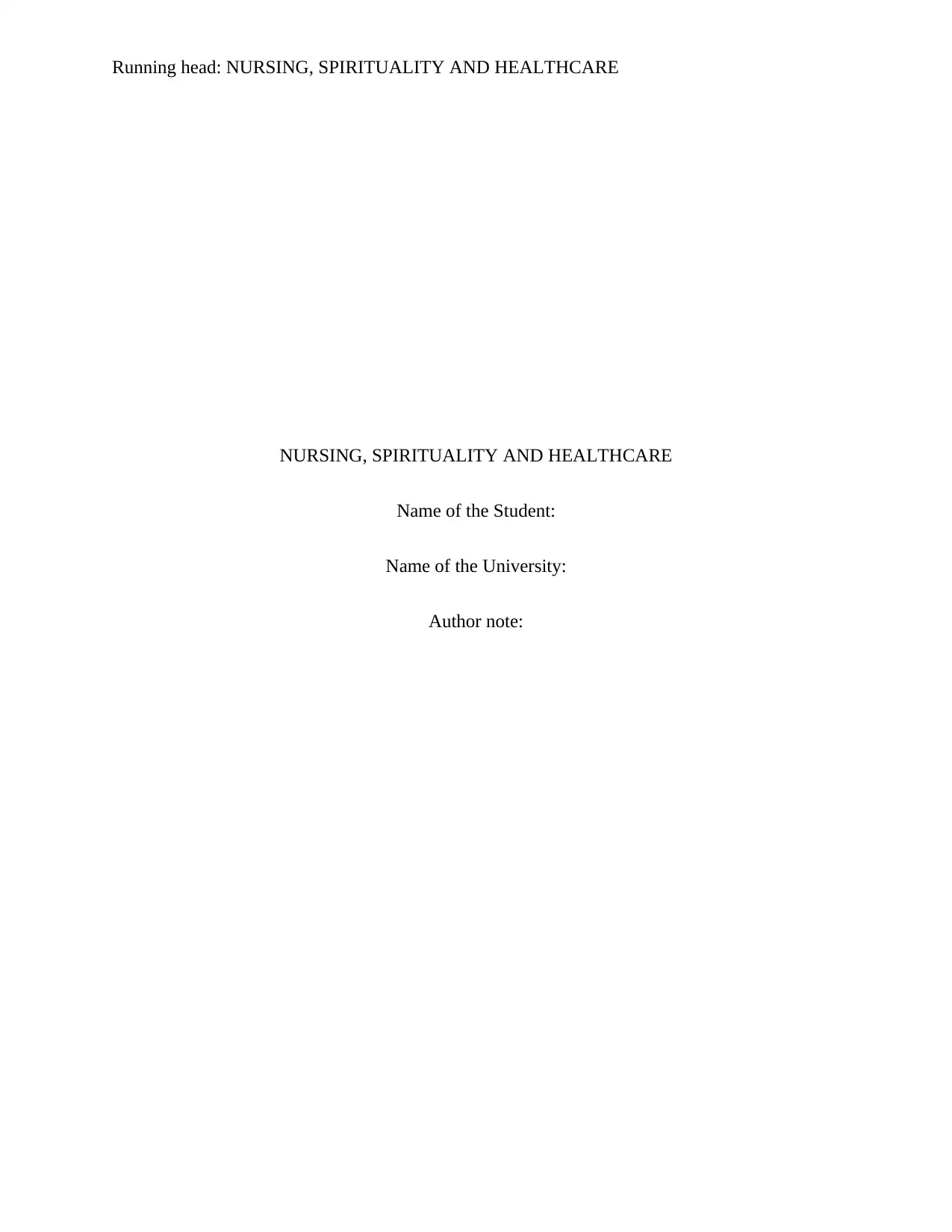
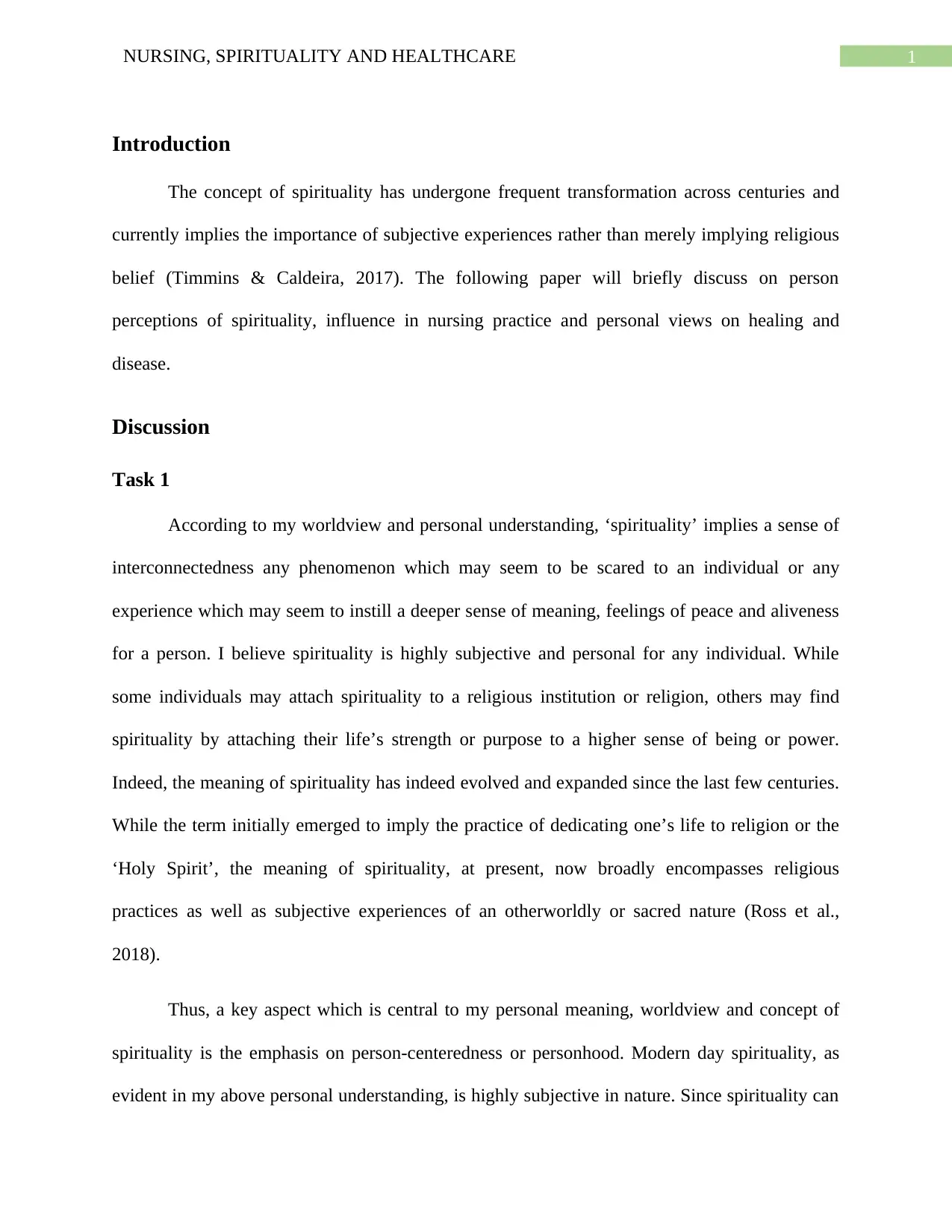
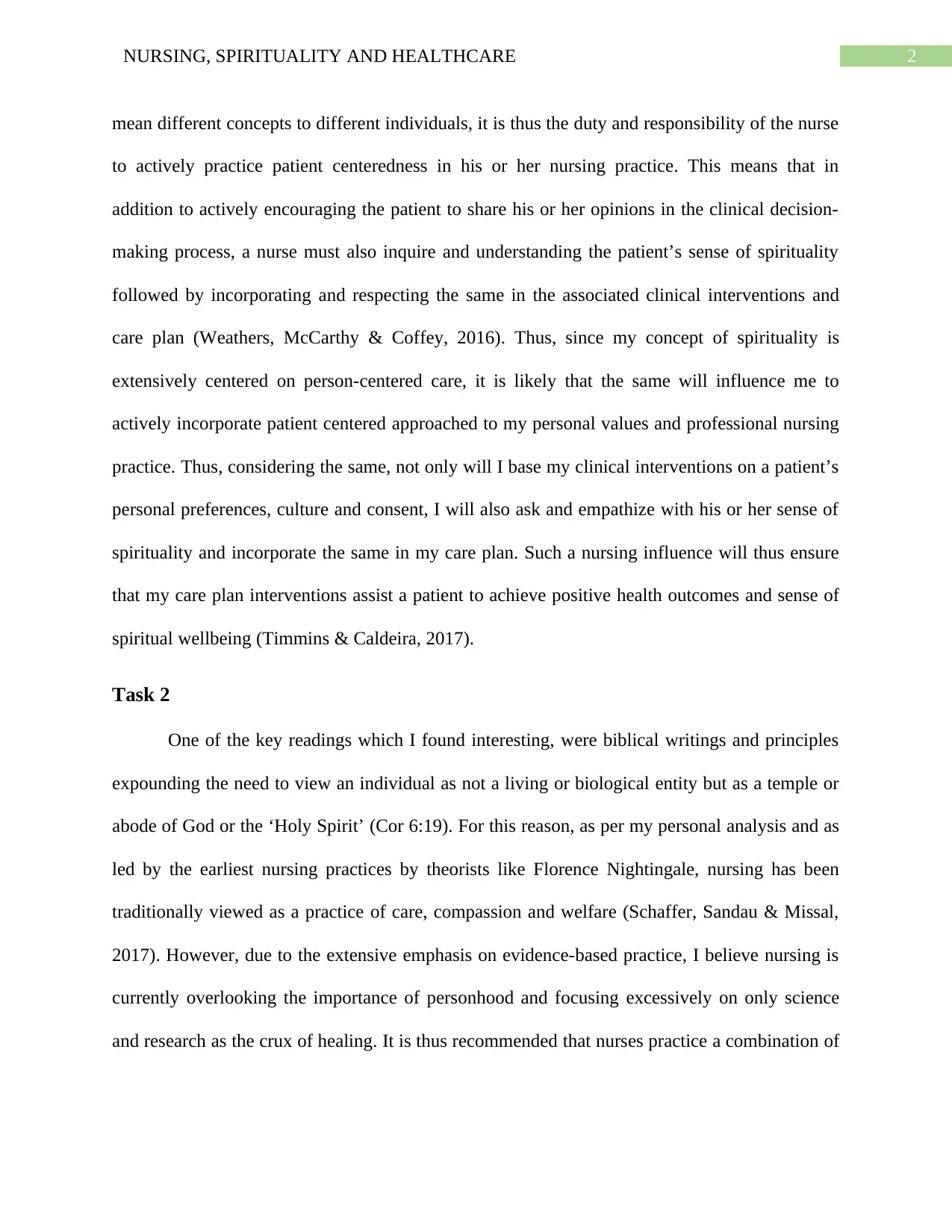

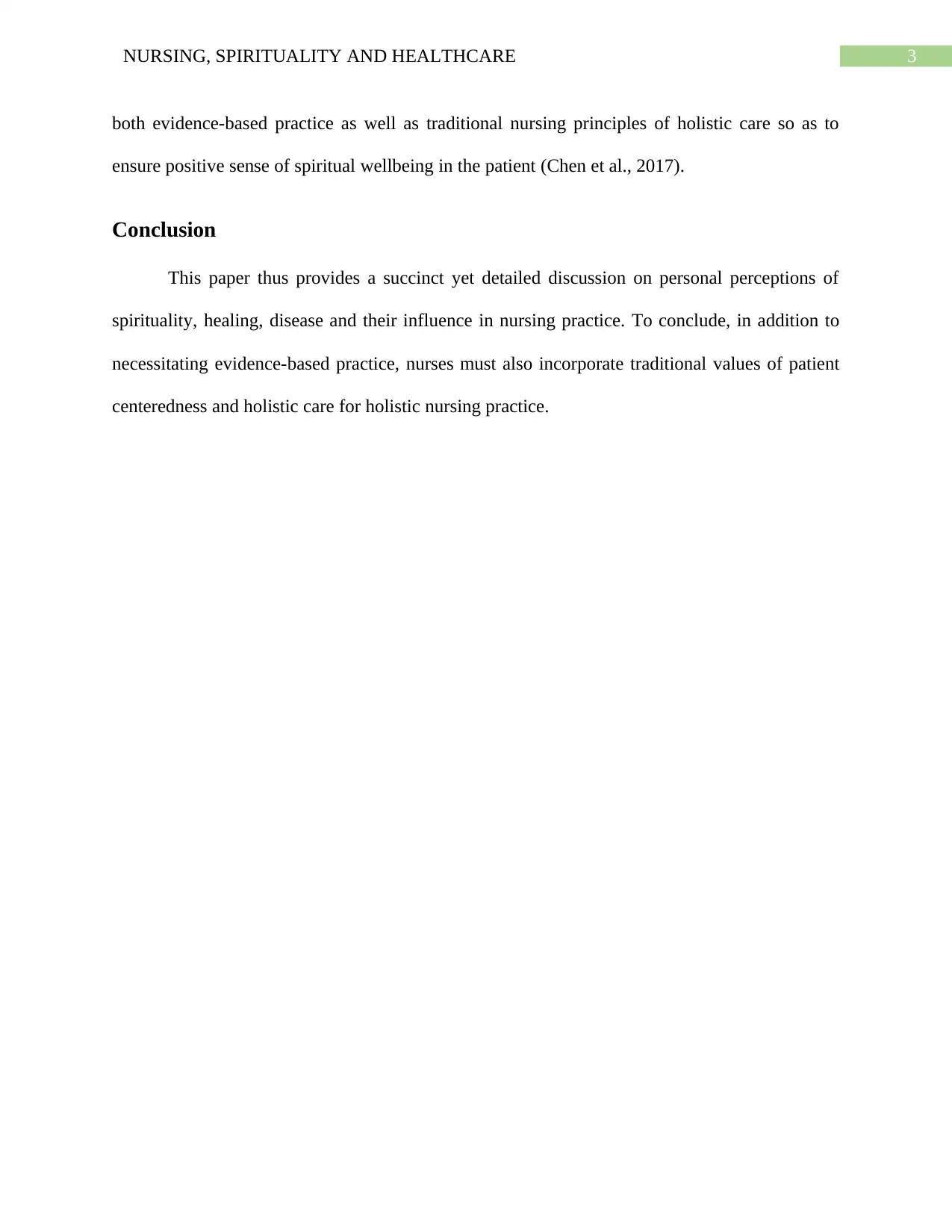
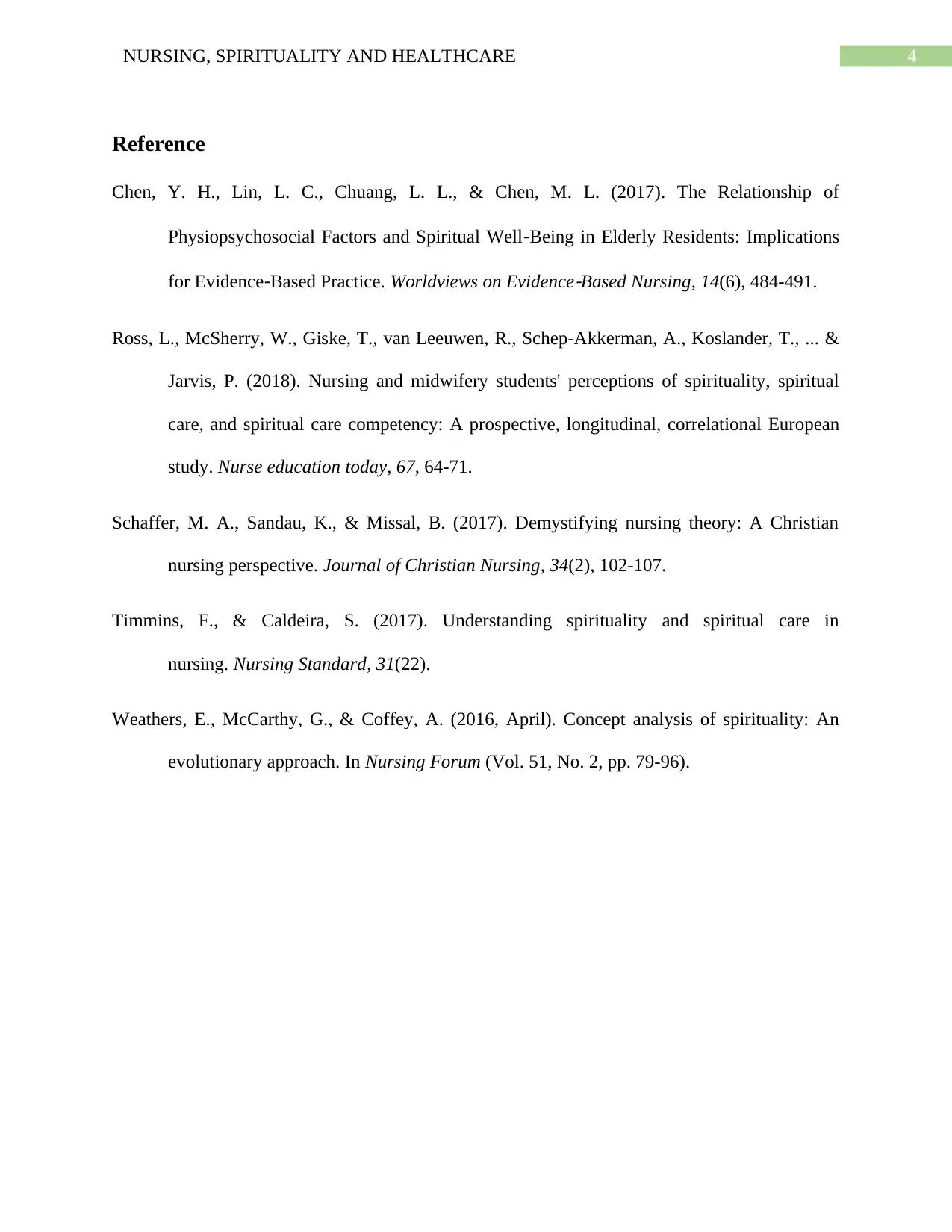






![[object Object]](/_next/static/media/star-bottom.7253800d.svg)